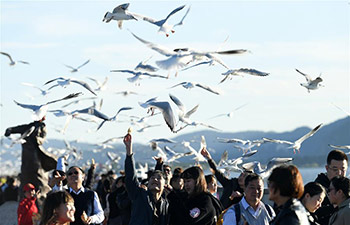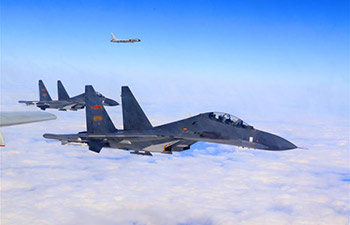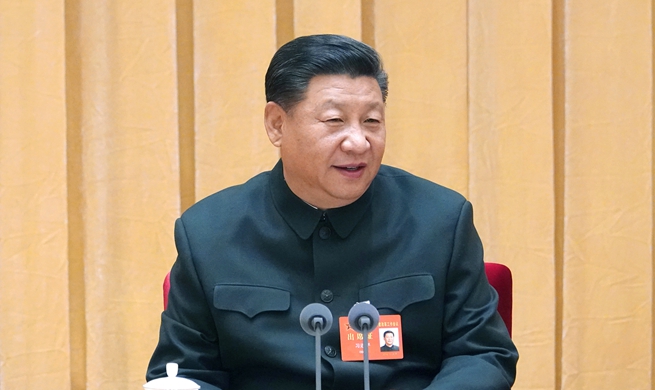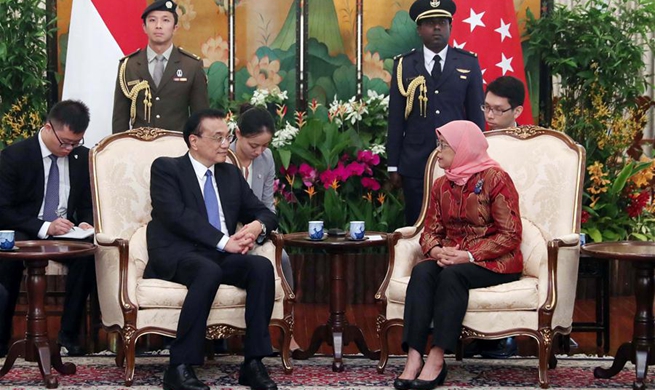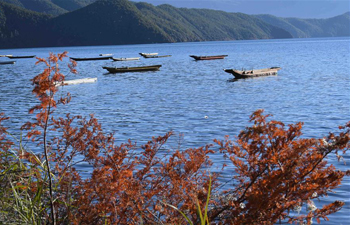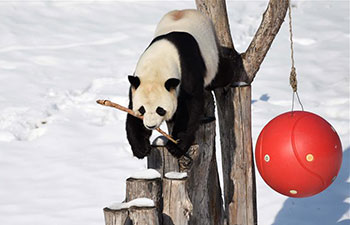WASHINGTON, Nov. 14 (Xinhua) -- The U.S. State Department on Wednesday announced to add 26 tourism-related subentities into its sanction list by barring Americans from visiting them.
According to a statement issued by the State Department, it was "adding 26 subentities to the Cuba Restricted List, including 16 hotels owned by the Cuban military."
The State Department was also updating the names of five already listed subentities to ensure they remain current, according to the statement.
The 26 names included the new five-star Iberostar Grand Packard and Havana Paseo del Prado hotels, as well as resorts and modest shopping centers.
The State Department said that direct financial transactions with these targeted entities and subentities were generally prohibited "because they would disproportionately benefit those services or personnel at the expense of the Cuban people or private enterprise in Cuba."
The sanctions, part of the Trump administration's efforts to prevent U.S. funds from reaching the Cuban military, intelligence and security services, would take effect on Thursday, the State Department said.
Even U.S. people's travel to Cuba remains legal, the sanction were still expected to give a blow to the island country's tourism industry by dampening interests of U.S. citizens to travel there.
Over 20 U.S. diplomats in Cuba suffered from what Washington called "acoustic attacks" between November 2016 and August 2017. The incidents led to the partial closure of the U.S. embassy in Havana, expulsion of 15 Cuban diplomats who worked at the embassy in Washington, and a halt to the issuance of U.S. visas in Havana.
Cuba rejected the accusation, initiated an investigation, and urged the United States to present evidence of the alleged attacks.
Though denying the U.S. accusation, Cuba reiterated its commitment to cooperating with the U.S. authorities to clarify this situation and its willingness to guarantee the health and safety of Cubans and foreign citizens in the island nation.
Wednesday's action came after U.S. National Security Adviser John Bolton on Nov. 1 unveiled a hard-line policy toward Venezuela, Cuba and Nicaragua.
Bolton said in a speech that the State Department would sanction over two dozen entities owned or controlled by the Cuban military and intelligence services, with which U.S. persons are banned from doing business with.
The goal is to prevent money from being gotten by the Cuban military, security and intelligence services, Bolton said, adding that the U.S. administration would review whether to allow U.S. citizens whose property was seized by the Cuban government to sue foreign companies that have invested in the properties in Cuba. Enditem





